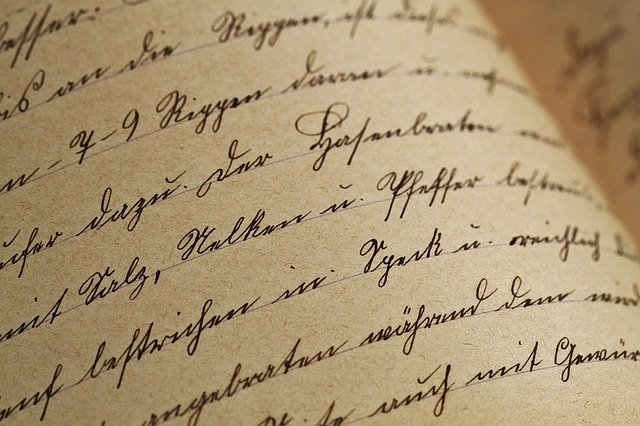Epic poem: what it is, definition, characteristics, how to write an epic poem and more
Contents
What is the epic poem?
It is one of the most important sub-genres of the epic genre of literature, considered one of the most important and representative, since it is a type of story of great length, whose content focuses on the narration of heroic deeds, however, its particularity lies in the objective presentation of events that can be real or fictitious and that are part of a certain spatial and temporal moment.
The form of composition, as well as its specific content, the position of the narrator and other elements that can be included, allow it to be distinguished from other subgenres that also had a great importance in the literary world.
Definition of the epic poem
This type of text refers to a long story that most of the time focuses on heroic deeds presented objectively with an elevated tone and the frequent presence of elements that are part of poetic language. The length of the epic poem is due to the fact that it can often integrate other sub-genres of genres such as lyric and dramatic.

History and origin of the epic poem
The birth of this epic subgenre dates back to the Latin era of the third century B.C. It is considered that the first samples of the epic poem are established with the recognition of The Odyssey, attributed to Homer, although this work has also been catalogued in other subgenres of the same epic. However, the epic poem in particular, has managed to survive several decades of history thanks to the immortalization by authors and poets who have used this subgenre to present historical events, rescuing the epic poem from oblivion.
Another of the most important works of the subgenre is La Araucana, an epic poem written by Alonso de Ercilla y Zúñiga, a work that shows the work of continuing to work the subgenre and whose content focuses on recounting the Arauco War, a confrontation in which the Spanish and the Mapuche were involved in Chile, a time that took place around the sixteenth century.
Characteristics of the epic poem
Although it could easily be confused with other subgenres, the truth is that the epic poem keeps a large number of elements that allow it to be distinguished, so we present them below:
Theme
Most of the time, the epic poem focuses on the presence of a hero who is idealized from the events presented. This is due to the value that his virtues and qualities receive, since strength, bravery, honesty, sense of honor, etc. are highlighted.
Narrator
In many cases, in the epic poem the narrator may be present within the work, or he may be absent as happens in the works of the lyric genre, but in fact he does not disappear completely as in the dramatic genre, genres with which he has a great relationship.
Real or fictitious character
Another aspect that we must review is that the content of the epic poem can be based both on real or fictitious events, that is, created by the author himself. Often the actions are focused and carried out from an era of the past that is sought to exalt. Thus, it is a narrative in the past tense.
Form of writing
As we mentioned, one of the particularities of the epic poem has to do with the form in which it is written, since it is usually written to be sung in a high tone, its composition involves the use of elements that belong to the poetic language, hence it receives its own name. On the other hand, it can be divided into cantos, verses, chapters, among others.
Due to its location
Space and time, the form used for writing is narration, since it allows it to emphasize details. However, in addition to the literary genres involved, it can also use dialogues, and even, in some cases, the epic poem is not necessarily written, but is kept orally, especially because it was sung by rhapsodes.
Frequent elements
Some of them are related to the course of events and aspects that are usually present that allow writers to give important twists, such as travel, the constant presence of obstacles and problems, the complexity of fate, divine interventions and relationships of this type, magical elements, supernatural elements that influence the sequence of events, among others.
Structure of the epic poem
Often the epic poem begins with a proem in which the theme of the work is explained, thus begins the first part and from there on, if the author wants, he can begin to divide the poem by cantos or verses, as he prefers. The course of the story is given by the order of the events that the author wants to organize, using rhetorical figures for the narration.
How to write an epic poem?
Now that we have seen what are the characteristics of this type of works, let’s see how we can write an epic poem already having concrete writing references:
Choose the hero of the story
The epic poem should be based on the virtues of a hero and his adventures, so it is key to choose a figure that contains characteristics such as bravery, honor, justice, honesty, etc., reasons why he is distinguished from others and allow him to be categorized as the hero of the story. Be sure to find these particularities to begin describing and setting up the situations for your hero.
Establish the conflict situations
One of the most important characteristics of the epic poem is that the story takes as its central axis an epic journey, in this fact realizes dangers that the hero must face, whether they are given by fate or by some divine entity. Another of the situations that are usually determinant for the course of events that the hero lives are wars, so that you can tell the return home or even the departure itself to the war.
These situations are the ones that will be of great importance in the story, since they will be the key points of complication that the hero will have to face during the narration.
Start writing
Once you have all this information ready, it is time to start the story. Remember that you can do it from the moment you want with the form of writing you prefer, you can even base it on the style of the classic epic poets to start and try what style you like the most to start working on your own style.
Remember that the verses do not necessarily have to rhyme, play with the words and include rhetorical figures that will be of great importance in the depth of the text.
Title the work
Once you have this first draft, which may well be your finished work, if you prefer, you should add a title to it. Often the work is named after the hero, such is the case of The Odyssey, whose protagonist and hero is Odysseus. It can also be related to a town directly, so you choose which element to relate it to.
Keep in mind that the length of the work should be long, include many emotional aspects that intensify aspects such as decision making, the feelings of those involved, the expression of desire, love, friendship, loyalty, among others. It includes aspects such as the work of the gods, destiny, magical factors, among others that must be present in an epic poem.

Authors and most important works
Homer’s Odyssey is a work that shares presence in other sub-genres of the epic, but it is also part of the epic poem especially. Other works that are also usually included in this categorization are The Aeneid by Virgil, The Araucana by Alonso de Ercilla, among others.
Example of an epic poem
The following is a fragment of the work La Araucana written by Alonso de Ercilla and one of the most representative samples of the epic poem:
FIRST PART
CANTO I
Which declares the seat and description of the Province of Chile and the State of Arauco, with the customs and ways of war that the natives have; and also deals in sum with the entrance and conquest that the Spaniards made until Arauco began to rebel.
Not the ladies, love, not the kindnesses
of knights singing in love;
nor the tokens, gifts and tenderness
of loving effects and cares;
but the courage, the deeds, the exploits
of those brave Spaniards,
that to the untamed neck of Arauco…
put a hard yoke by the sword.
I will also say some very remarkable things
of people who obey no king,
reckless and memorable enterprises
that rightly deserve to be celebrated;
rare industries, praiseworthy terms
that the Spaniards magnify the most:
for the victor is not more esteemed
than that in which the vanquished is reputed.
I beseech you, great Philip, that, having looked at
this work be received from you,
that, in need of every favor,
it remains with giving itself to you favored:
It is an uncorrupted relation, taken
from the truth, cut to its measure;
despise not the gift, though so poor,
so that my verse may gain authority.
